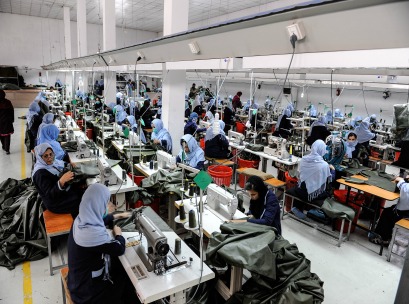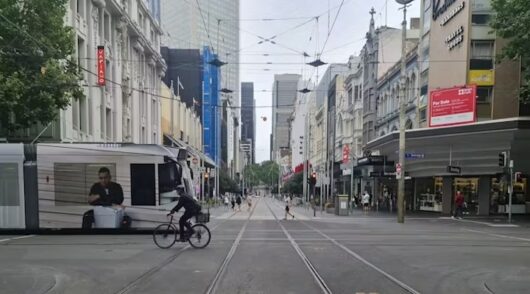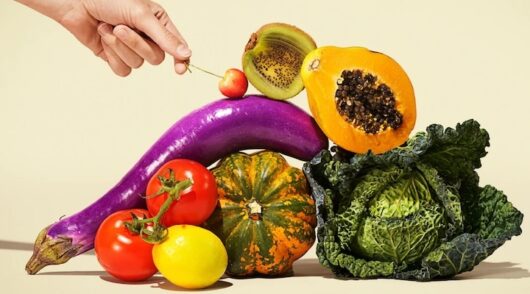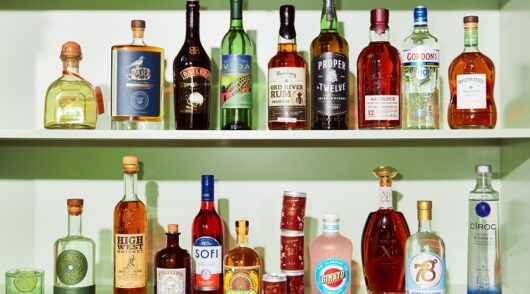 If Australian fashion brands were rated on ethics over style, less than 10 per cent would score an A or A+.
If Australian fashion brands were rated on ethics over style, less than 10 per cent would score an A or A+.
The 2018 Ethical Fashion Report has graded 114 apparel companies, revealing Australian brands have achieved a median C rating, closing the gap on their overseas counterparts (median score of B-) for transparency in global supply chains and workers’ rights.
The Baptist World Aid Australia annual report, published on Wednesday, comes a week before the fifth anniversary of the Rana Plaza factory collapse that killed more than 1100 people in Bangladesh in 2013 and sparked a push for change in safety standards across the industry.
Since the factory collapse, the fashion industry has made some headway in improving supply chain transparency, with 35 per cent of companies now publishing full direct supplier lists, according to the report.
In comparison, brands fared badly on tackling workers’ rights with only five per cent able to prove they were paying all their workers a living wage. A further 12 per cent showed they were paying some of their workers a living wage, while 70 per cent of the industry is yet to take significant action to improve worker wages, the report showed.
Out of the 61 Australian fashion brands listed, eight flunked with an F rating, including Bras N Things, Decjuba, Ally Fashion and Wish Designs.
On the top of the list, niche brands dominated with three A+ scores going to Etiko, Mighty Good Group and Outland Denim.
But some players within the fast fashion industry – which is synonymous with cheap labour and environmental pollution – have worked hard to improve their practices, and report card.
Baptist World Aid Advocacy Manager Gershon Nimbalker says a number of brands have been spurred to change, such as Cotton On, which scored an A on the report and topped the list for multinationals headquartered in Australia.
Other fast fashion brands such as Kmart, Jeanswest and Target all scored either a B or B+.
“When we first started the reports (2013), Aussies were well behind their international brands, but it was a wake up call for the industry,” Nimbalker told AAP.
“We’ve seen them playing a pretty impressive game of catch up.
“Cotton On is one of the most iconic examples, they’ve worked closely with us to push themselves forward.”
Nimbalker said consumers should vote with their wallet, checking the report for company scorecards.
“If their favourite brands aren’t doing enough, it’s a great opportunity to reach out to them.”
Report ‘reflects the beliefs’ of BWA: Decjuba
Decjuba scored an F on the BWA report for not participating, but the brand has sought to defend itself, circulating a statement clarifying its commitment to social and ethical compliance.
“We have a very clear mandate around social and ethical compliance, we hold ourselves and our suppliers accountable to clear principles,” the company said in a statement.
“Our suppliers comply with a contract which sets out our own set of non-negotiable principles regarding working conditions, wages, animal rights, sustainability and corruption. Each of our factories is audited by an external regulator, and our team visit the factories that we partner with to ensure that our code of conduct is being upheld.”
“We appreciate the intentions of the Baptist World Aid Guide, but also recognise it as an unregulated survey driven by the Baptist World Aid Organisation’s own set of beliefs. The ratings system is based on information submitted by participating companies and the Baptist World Aid research team do not conduct site inspections to verify these detail,” the company said.
“The Baptist World Organisation awards an F for non-participation, which can be misleading to consumers.”
Access exclusive analysis, locked news and reports with Inside Retail Weekly. Subscribe today and get our premium print publication delivered to your door every week.





